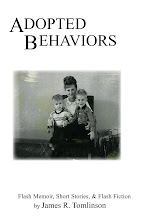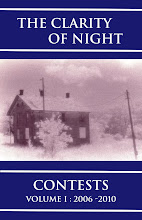John Jeffrie’s novel Motown Burning breathes life into an all too familiar battered and bruised Detroit, reminding me of John Dos Passos’s Manhattan Transfer, how 200-plus characters as a collective group define New York City, where the setting “becomes” the main character with a steady flow of immigrants coming and going, searching for opportunity, for a place to call home.
In Motown Burning the ’67 Detroit Riots serve as the major focal point in unraveling the unfortunate events involving Aram Pehlivanian, aka A.P., aka Motown. He’s a hot-head, a perceived trouble-maker, raised by his uncle in the inner city, loved by a girl named Katie. The story begins in medias res, with Motown battling the Viet Cong. Other soldiers seek his experience in the jungle; believing their chances of survival will increase if they stick close to him. In the words of Saint:
Man, I tell you, I loved that white boy. I mean, I wasn’t too hip on being moved into that unit, like I was moving into Green Acres, you know, all those white folks … I was about survival, man, my own survival, and I don’t care if you black, white, purple, or striped I was gonna hang with you if I thought you would cover my ass for a few extra seconds a life.
As the story unfolds, business owners, police, National Guardsmen, Blank Panthers, Vietnam veterans, and regular citizens share experiences and opinions of the ’67 Detroit Riots and how they were able to survive. All these perspectives, whether you agree with them or not, reveal the complexities and misconceptions of the different types of people. Here’s one such character’s take on the rioting, Judge Donaldson:
How many buildings and vehicles and communications networks destroyed, how many millions of dollars worth of infrastructure lost? ... You know what’s going to happen now? Hmm? I’ll tell you, and you mark my words, you’re going to see a mass exodus of white citizens from within the city limits. You watch.
He goes on to talk about his role in the justice system, a role that affects Motown:
We’ve got to weed out our culture, take a hoe and cut out the vermin and parasites so the fruit can grow. If we have to ship the waste to Vietnam, then so be it … Give unproductive, dead-end misfits rifles and send them off to a jungle someplace, hopefully never to return.
He also believes this to be a viable solution for alleviating prison overcrowding.
But what happens to those so-called “productive” citizens, those “law-abiding” citizens who are issued weapons and sent to quell the disturbance in Detroit? Private Simkowski, a National Guardsman, says:
Shoot first, ask questions later. Something comes up, I only got one life and I was going to defend myself no matter who I had to pull the trigger on.
At what cost to society can peace be restored? Because of Simkowski’s actions a mother suffers greatly. Selma:
My baby died because of a glass of water …Those soldiers and tanks and police weren’t here to protect us.
Jeffrie does a wonderful job of depicting the hopes and fears through the voices of his characters. The novel is divided into three sections:
I. The Jungle – what happened to A.P. in Vietnam?
II. The City – how A.P. met Katie and got through the ’67 Detroit Riot (and more about how he ended up in Vietnam)
III.The Return – how Katie saved A.P. and how he got home.
By telling the story of Motown in a non-linear fashion using different vantage points, Jeffrie challenges the reader to observe the social unrest here and abroad as if to say: Here is the biggest defining moment of our fair city of Detroit and its people; here is why Detroiters, regardless of how dire the circumstances, have resilience and never give-up. Aram Pehlivanian, aka Motown, is such a character.
Motown Burning is available for purchase at John Jeffire's website: click here.
10/27/10
Subscribe to:
Post Comments (Atom)






11 comments:
Doesn't seem very wise to me to give criminals out of prison guns and the training to use them, then let them come back home.
Hey Charles, In this story Motown is given a choice: Vietnam or prison. He chooses Vietnam. On the other side of the coin: It doesn't seem very wise to issue weapons to inexperienced guardsmen with orders to maintain peace in the inner city.
The draft and the court were two ways used to cull the heard of dissenters and angry kids of '67.
If you never lived under marshal law you have no idea of those days of Detroit. 4 kids sitting on a porch two miles outside of the riot zone having a half track full of Federal Troops pointing their rifles at you ordering you into your house tends to leave an impression on the mind.
I would have to take issue though with Jeffire about using the riots and '67 as the event that began the exodus. It began as trickle a decade earlier than that and by '67 it was already a full blown movement of white away from black.
That entire period from '55 to the present is enough to keep a dozen social anthropologists busy studying for decades.
Jim your email have me blocked? or is it not working. been trying to forward a msg. yto you but it keeps getting kicked back as undeliverable.
JR- I was a child at my Grandparents in 67 and remember the chaos and fear. We even had a curfew. Scary shit...
Gordon Lightfoot
Em D
Black day in July
Em D G Em
Motor City madness has touched the country side
C Em C Em
And through the smoke and cinders you can hear it far and wide
C Em C Em
The doors are quickly bolted and the children locked inside
D Em
Black day in J uly
Black day in July
And the soul of Motor City is bared across the land
As the book of the law and order is taken in the hands
Of the sons of the fathers who were carried to this land
Black day in July
Black day in July
In the streets of Motor City is a deadly silent sound
And the body of a dead youth lies stretched upon the ground
Upon the filthy pavements no reason can be found
Black day in July
Black day in July
Motor City madness has touched the country side
And the people rise in anger and the streets begin to fill
And there's gunfire from the rooftops and the blood begins to spill
Black day in July
...
I used to know a Swedish girl.
She said, "Yas. I have no hoosband."
...Or for that poetry.
Swedish self-absorbtion; The quicker-picker upper.
Gives new meaning to Swedish meatballs.
Ooh, this sounds great! Nice to see a reference to John Dos Passos, too~~
Post a Comment